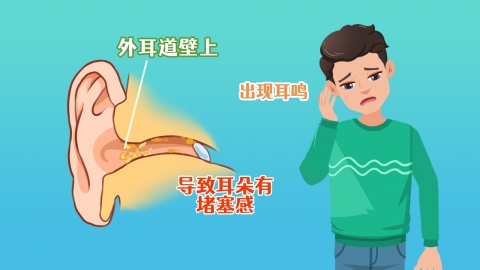What causes a buzzing sound in the ears?
The term "buzzing in the ears" refers to tinnitus. Generally, tinnitus may be caused by aging, prolonged exposure to noise, otitis media, Ménière's disease, hypertension, and other factors. Symptomatic management usually involves general treatment and medication. If discomfort occurs, it is recommended to seek timely medical attention and undergo appropriate treatment under a physician's guidance. Detailed explanations are as follows:

1. Aging
With advancing age, the auditory system gradually deteriorates, which may lead to damage of the inner ear hair cells, affecting the transmission of auditory signals and causing tinnitus. It is recommended to improve hearing and reduce the impact of tinnitus by using hearing aids and undergoing hearing rehabilitation training.
2. Prolonged Exposure to Noise
Remaining in high-noise environments for extended periods, such as factories or concerts, can damage inner ear hair cells and affect the normal function of the auditory nerve, causing tinnitus, which may be accompanied by symptoms such as hearing loss and headache. It is recommended to avoid prolonged exposure to loud noises and to use earplugs or earmuffs to protect the ears.
3. Otitis Media
Otitis media is primarily caused by bacterial or viral infections, Eustachian tube dysfunction, and other factors. In cases of otitis media, symptoms such as inflammation and fluid accumulation may occur in the ear canal. These symptoms can compress or irritate the auditory nerve, leading to abnormal nerve signal transmission and resulting in tinnitus. Symptoms commonly include ear pain, hearing loss, and ear discharge. It is recommended to follow a physician's instructions to treat with medications such as amoxicillin capsules, roxithromycin tablets, and cefadroxil dry suspension.
4. Ménière's Disease
Endolymphatic hydrops, immune abnormalities, ischemia, and other factors may lead to Ménière's disease. In Ménière's disease, impaired circulation of inner ear lymph leads to fluid accumulation in the inner ear, which compresses the auditory nerve, causing tinnitus, often accompanied by symptoms such as vertigo, hearing loss, and a feeling of fullness in the ear. It is recommended to follow medical advice to use medications such as betahistine mesylate tablets, diphenhydramine hydrochloride tablets, and methylprednisolone tablets to alleviate symptoms.
5. Hypertension
Long-term high-salt diet, emotional fluctuations, genetic factors, and other reasons may cause hypertension. Hypertension leads to vascular hardening and reduced elasticity, affecting blood supply to the inner ear and causing ischemia and hypoxia in inner ear tissues, which can result in tinnitus. Patients may also experience symptoms such as headache, dizziness, and blurred vision. It is recommended that patients follow their physician's instructions to use medications such as nifedipine tablets, methyldopa tablets, and captopril sustained-release tablets for treatment.
It is recommended to maintain a regular routine, ensure 7-8 hours of sleep daily, avoid staying up late, and allow the body sufficient rest to help alleviate symptoms.





